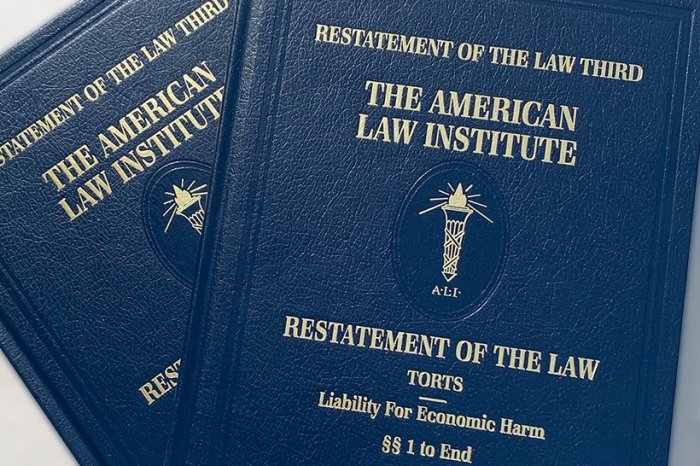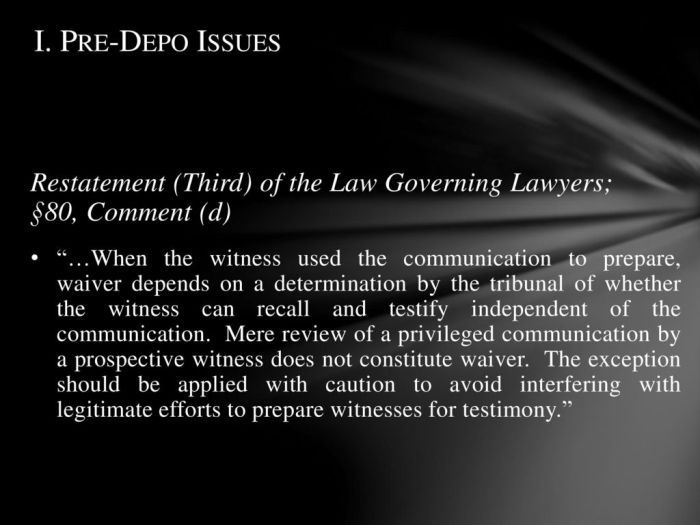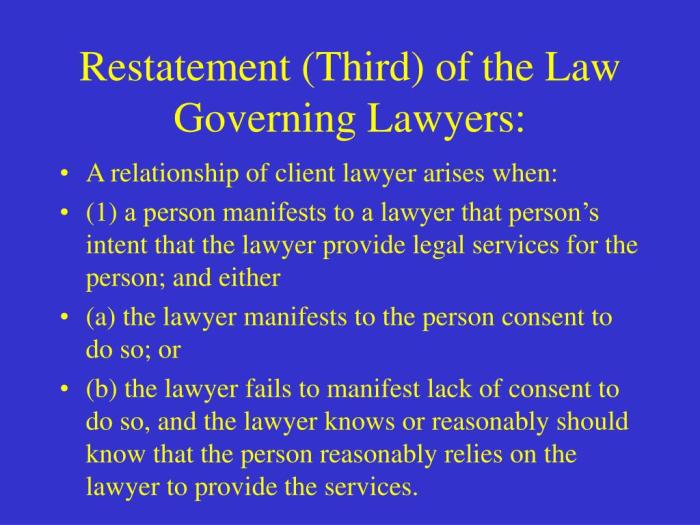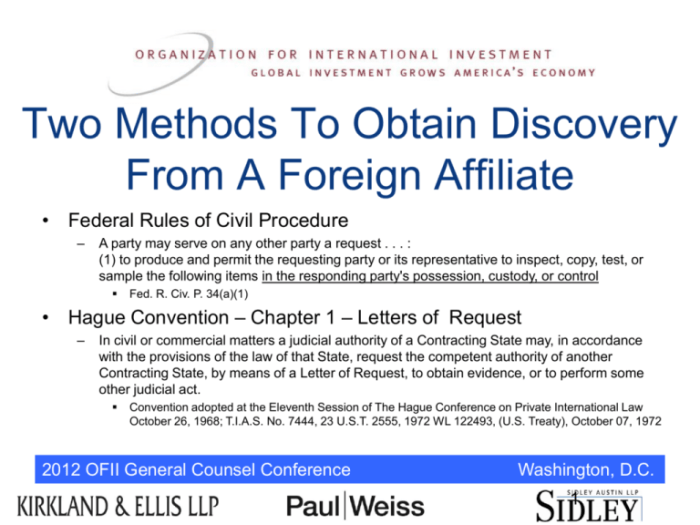The Restatement Third of the Law Governing Lawyers, a cornerstone of legal ethics, provides a comprehensive framework for understanding the ethical and professional responsibilities of attorneys. This authoritative work serves as a vital resource for legal practitioners, scholars, and anyone seeking to navigate the complexities of the legal profession.
The Restatement Third encompasses a wide range of topics, including ethical duties, professional responsibilities, the lawyer-client relationship, discipline and malpractice, and its impact on the legal profession. Its principles and rules have shaped ethical and professional standards, influencing legal cases and shaping the conduct of lawyers.
Introduction

The Restatement Third of the Law Governing Lawyers (Restatement Third) is a comprehensive legal treatise that sets forth the ethical and professional responsibilities of lawyers in the United States.
It was published by the American Law Institute (ALI) in 2000 and is the successor to the Restatement of the Law Governing Lawyers (1983) and the Model Rules of Professional Conduct (1983).
The Restatement Third is a highly influential work that has been cited by courts and legal scholars as authoritative guidance on lawyer conduct.
Scope of the Restatement

The Restatement Third covers a wide range of topics, including:
- The lawyer-client relationship
- Conflicts of interest
- Confidentiality
- Competence
- Diligence
- Fees
- Discipline
Ethical Duties
The Restatement Third articulates a number of ethical duties that lawyers owe to their clients, including:
- The duty of loyalty
- The duty of confidentiality
- The duty of competence
- The duty of diligence
- The duty of candor
Professional Responsibilities
In addition to ethical duties, lawyers also have a number of professional responsibilities, including:
- The duty to avoid conflicts of interest
- The duty to withdraw from representation
- The duty to keep clients informed
- The duty to charge reasonable fees
Lawyer-Client Relationship
The Restatement Third recognizes that the lawyer-client relationship is a fiduciary relationship, which means that lawyers owe their clients a high degree of trust and loyalty.
Lawyers have a duty to act in the best interests of their clients and to avoid any conflicts of interest that could impair their judgment.
Discipline and Malpractice, Restatement third of the law governing lawyers
Lawyers who violate ethical or professional rules can be subject to discipline by their state bar association.
In addition, lawyers can be held liable for legal malpractice if they breach their duty to their clients.
Comparison to Other Codes of Conduct
The Restatement Third is similar to other codes of conduct for lawyers, such as the ABA Model Rules of Professional Conduct.
However, the Restatement Third is more comprehensive and provides more detailed guidance on a number of issues.
Impact on the Legal Profession
The Restatement Third has had a significant impact on the legal profession.
It has helped to raise ethical and professional standards and has provided lawyers with clear guidance on how to conduct themselves.
Frequently Asked Questions: Restatement Third Of The Law Governing Lawyers
What is the purpose of the Restatement Third of the Law Governing Lawyers?
The Restatement Third provides a comprehensive and authoritative framework for understanding the ethical and professional responsibilities of lawyers.
What are some of the key ethical duties covered by the Restatement Third?
The Restatement Third addresses ethical duties such as maintaining client confidentiality, avoiding conflicts of interest, and providing competent representation.
How does the Restatement Third impact the lawyer-client relationship?
The Restatement Third defines the nature and scope of the lawyer-client relationship, emphasizing the fiduciary duties owed by lawyers to their clients.

